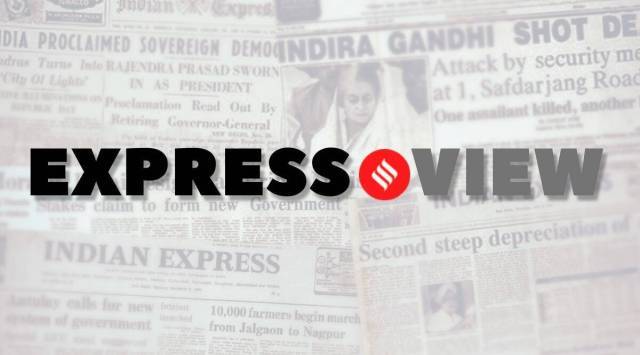
The all-party meeting on Manipur in New Delhi, chaired by Home Minister Amit Shah, is a good beginning. The Centre was non-committal on the demand from many Opposition parties to replace Biren Singh as chief minister. However, Shah said the government will consider all the suggestions with an “open mind”. This positive approach should stand the government in good stead as it struggles to put out the fire raging in Manipur for nearly two months.
The killings have stopped, as Shah said, but mobs continue to rule the streets and successfully stall the efforts of armed forces to detain rioters and miscreants suspected to be members of banned terror groups. The fact is the administration on the ground has been found wanting, a point the Opposition highlighted at the Saturday meeting.
The BJP and Prime Minister Narendra Modi talk about a double-engine sarkar and the benefits it entails. Its government in Imphal, seen as partisan, is discredited and seems to be ineffective in bringing the situation under control.
The Biren Singh government has watched the ground slip as the ethnic divide between the Valley Meiteis and hill tribes, including the Kuki and Zomi, widened following a high court directive on ST status for the former in March. Since early May, ethnic violence began to engulf both the Imphal Valley and the hills. Over a hundred persons have been killed and many thousands displaced.
Property and assets, including of people in government and the state BJP leadership, have been targeted by mobs. Even the security forces, which have shown great restraint during policing and combing operations, have not been spared. The Centre has to step in and fix the deficit of authority on the ground. One engine of governance has collapsed for sure, it is now for the other to step up and enable the administration to get back on track. The State has to regain control of the street, establish its authority and regain the trust of citizens. The Centre could consider the Opposition’s suggestion for an all-party delegation to visit Manipur. It will send out the message that there is no partisanship in the search for a resolution and the nation is united in wanting to end the violence.
All this will require a concerted effort from the Centre to continue engaging with the Opposition and exploring spaces that may help address the disquiet in Manipur. Ethnic tensions in the state are not a recent development nor are simple solutions available to resolve them. But the immediate step is to end the violence and restore the command of the State. All the parties, in office and in opposition, should try to persuade the warring parties to sit across the table and spell out their fears and concerns in order to discover common ground. Demonising the neighbour or mob violence has never helped resolve political problems — Manipur’s crisis is political and its solutions have to be found in politics.